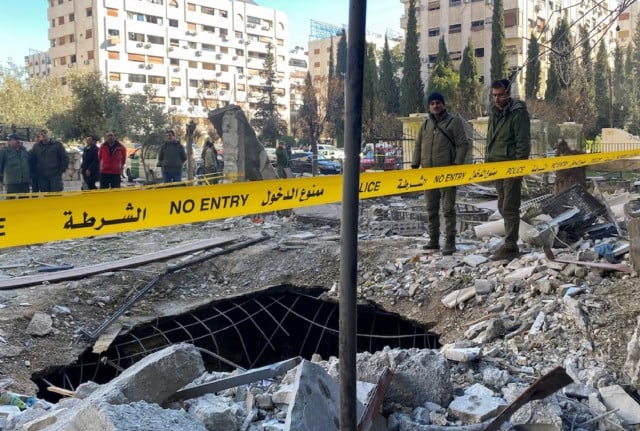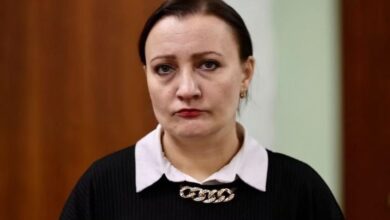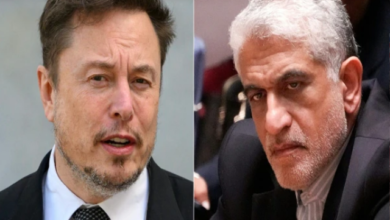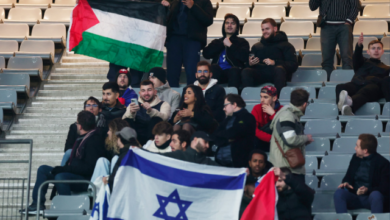Israeli invasion targeted central Damascus and a military installation near Homs early Thursday, according to Syria’s defence ministry, killing one Syrian soldier and injuring seven others.
The attacks mark the latest escalation in Israel’s ongoing military invasion across the region, as it seeks to counter Iranian-backed groups like Hezbollah and Hamas, while the US pushes for de-escalation before the upcoming presidential election.
In Damascus, the attacks specifically hit the Kafr Sousa neighborhood, known to house security installations and high-ranking officials.
Syrian state media reported explosions in the area, which caused significant material damage.
The Syrian government has long condemned Israel’s repeated air invasion on what it describes as Iranian-linked military targets, a practice Israel has maintained for years as part of its effort to curb Tehran’s influence in Syria and Lebanon.
The Israeli attacks near Homs also targeted military facilities in the countryside, though details on the extent of the damage were not provided.
Previously, IDF claimed that it had killed Adham Jahout, a Hezbollah operative, in an air attack on southwestern Syria on October 10.
These attacks come as Israel intensifies its air raids on Syria, which have increased substantially since the Gaza war erupted on October 7.
Simultaneously, Israel conducted attacks on southern Lebanon, where Lebanese officials reported three soldiers, including an officer, were killed.
The soldiers were evacuating wounded civilians near the village of Yater, located close to the volatile Israel-Lebanon border.
The Lebanese military confirmed the deaths in a statement on Thursday.
The strikes are part of Israel’s broader retaliation against Hezbollah, which has escalated its involvement in the conflict by launching missiles and drones at Israeli targets in recent weeks particulalry after the death of Hashim Safieddine, apparent heir to Hezbollah’s Nasrallah also assasinated by IDF forces.
Israel’s actions have not been confined to Syria and Lebanon.
Overnight, the Israeli military launched at least 17 strikes on Beirut’s southern suburbs, leveling six buildings in a series of attacks that took place without prior warning. Lebanon’s Health Ministry reported at least one civilian killed and five others wounded in these strikes, which targeted areas believed to house Hezbollah infrastructure.
Israeli forces have repeatedly warned residents to evacuate certain neighborhoods, but the lack of warning in these latest raids has drawn criticism.
The situation in Gaza also remains dire.
Israeli attacks continue to pound the region, particularly targeting the northern areas.
Gaza’s health authorities report over 42,000 Palestinians have been killed, with thousands more injured since the conflict began on October 7.
On Wednesday, Israeli forces killed a senior Hamas leader, Yahya Sinwar, who was at the top of Israel’s most-wanted list.
Israeli officials believe his death could represent a turning point in their military campaign, though Palestinian groups have vowed continued resistance.
The United States, meanwhile, is ramping up its diplomatic efforts to prevent the conflict from expanding further.
US Secretary of State Antony Blinken is on a tour of the Middle East, pushing for a ceasefire and hoping to prevent a wider war involving Hezbollah, Hamas, and their Iranian backers.
Washington is particularly concerned about the possibility of Iranian retaliation after an Israeli attacks in early October targeted Iranian forces in Syria.
While Blinken has urged Israel to respond to threats without further escalating the situation, the ongoing Israeli attacks suggest little immediate prospect of a halt to the fighting.
The broader context of the conflict is one of growing regional instability. Hezbollah, an Iran-backed Lebanese group, announced on Wednesday that it had used precision-guided missiles for the first time in its attacks on Israel, marking a significant escalation.
Hezbollah also confirmed the launch of new types of drones targeting Israeli sites.
While Israel’s military has intercepted some of the missiles and drones, the increasing sophistication of Hezbollah’s arsenal raises concerns about a prolonged conflict.
In addition to the military dynamics, Israel is facing international criticism over its treatment of journalists in the region.
On Wednesday, Israel made claims accusing six Palestinian journalists working for Al Jazeera in Gaza of being members of Hamas or Islamic Jihad, a charge the Qatari news network denied as baseless.
Al Jazeera, which has been covering the war extensively, condemned the accusations as an attempt to silence journalists reporting on the conflict.
The Committee to Protect Journalists also criticized the allegations, saying they amounted to smearing Palestinian reporters without evidence.
The unfolding crisis continues to put immense pressure on civilians across the region. In Gaza, tens of thousands of people have been displaced, with many now struggling to survive amidst dwindling supplies of food, water, and medicine due to the ongoing Israeli blockade.
UN officials have warned that the humanitarian situation in the region is deteriorating rapidly, with over 1,100 people having been killed in Israel and more than 200 taken hostage by Hamas during the initial attack.
The US government has reportedly given Israel 30 days to increase humanitarian aid access to Gaza or face potential cuts to US military assistance.
However, as Israeli attacks continue and Hezbollah escalates its involvement, the chances of a diplomatic solution seem increasingly distant.
As tensions rise and the conflict expands, the risk of a broader regional war involving Israel, Hezbollah, Syria, and Iran grows more imminent.
With Washington working urgently to mediate, the coming weeks will be critical in determining whether a path to de-escalation can be found, or if the region will descend into further violence.







